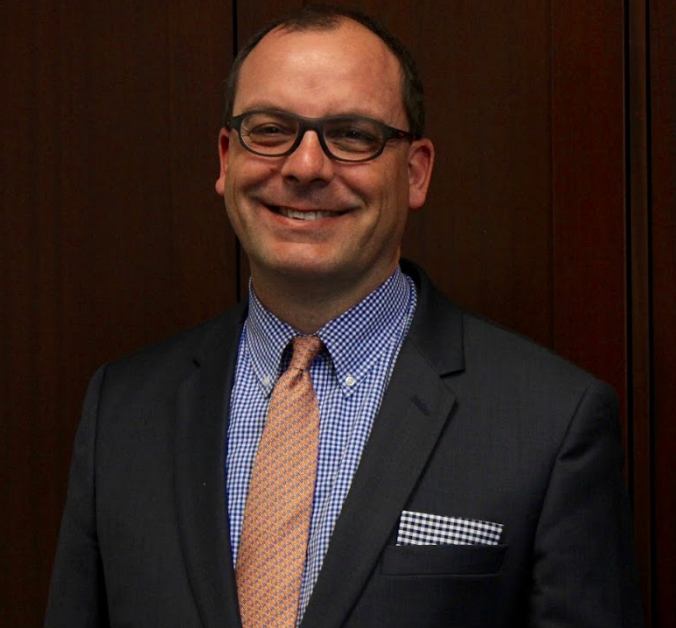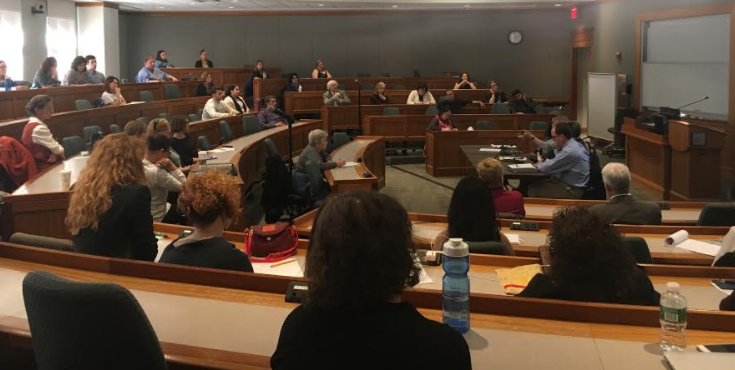Few seats were left open on Thursday when students, faculty and staff from the different divisions of Suffolk University gathered on the second floor of Sargent Hall for a campus forum on President Donald Trump’s Executive Order.
Following a bitter few weeks of rolling news segments on the recent travel ban for seven predominantly Muslim nations, some within Suffolk’s international community live in fear of their rights as a student being revoked. The campus forum, called on by Acting Provost Sebastian Royo, a member of Suffolk’s global community himself, said that in the 26 years he has been living in the United States, this was the first time he has felt on edge.

“This is the first time since I’ve moved here that I’ve felt uncomfortable, where my accent has made me self conscious,” said Royo, who was born in Spain during a dictatorship.
Royo, who said that he had come to the U.S. and was only suppose to remain in the states for a few years as a student, explained “life happens” and it’s why he could stand in front of a crowd of students as one of their leaders.
In a panel-style lecture, Senior Director of the Division of Student Success Kathy Sparaco, Director of Counseling, Health and Wellness Jean Joyce-Brady and Clinical professor of Law Ragini Shaw sat at the bowl of the lecture hall and each gave a mini synopsis of what the travel bans Trump has enacted and how they will affect students at the university. Acting President Marisa Kelly was not in attendance due to a fundraising trip, according to Royo, but “fully supported” the forum and the backing the university has offered to students and staff.
Royo, who introduced each of the panelists, said the event was a direct reflect of Suffolk’s founding of acceptance and opportunity. Royo cited Suffolk’s founder Gleason Archer who gave access to Law School to minorities in an age where only a certain type of person– white, middle to upper class male — was able to receive an education.
“It is critical, as a higher education institution, to not turn a blind eye,” said Royo in response to how some international students may be affected by the travel ban and whether they will be able to leave the country in fear of possibly not being able to return. “This goes much farther than politics, this is about values.”
Joyce-Brady, who discussed the “stress” in Americans that was cited in a recent report by the American Psychological Association, published this past January, that the anxiety of the future of the country continues to rise among citizens on both sides of the political spectrum.
The original travel ban executive order by Trump had impacted populations of Americans with a loss of trust with the federal government and hypervigilance, according to Joyce-Brady.
Shah, however, broke down the legalities to the executive orders, even while they are strung up in court alongside Sparaco, who pointed out that international students were crucial at American universities for both consumer and perspective reasonings.
The question and answer section of the forum had lasted only 10 minutes before the event had come to a close.




















